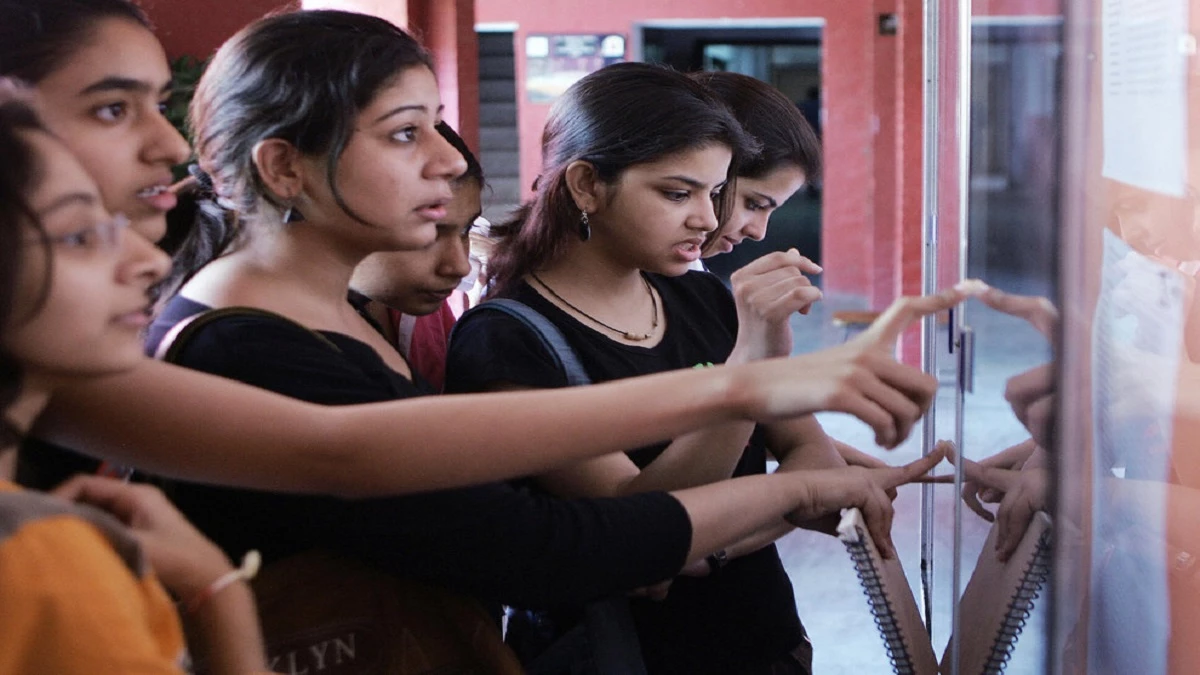NBSE HSSLC Syllabus 2025-26 is set by the Nagaland board. From its official website, you can get the syllabus PDF for all subjects of Science, Commerce, and Humanities streams. In Science, students will have to study Physics, Chemistry, and Biology. In Commerce, Economics, Business Studies, and Accountancy are the main subjects. For the Humanities stream, students will have to study Geography, History, and Political Science. Each subject will have a theory exam. Some subjects will have a practical exam too. For the detailed syllabus, students can visit online and check the syllabus in detail. Besides the syllabus, students can also check the NBSE HSSLC exam pattern 2025-26 to prepare for the board exams. Continue reading the article for more information about the Nagaland Board Class 12th Syllabus 2025.
Nagaland Board Class 12th Psychology Syllabus 2025-26
Below given is the detailed syllabus:
Unit / Chapter | Topics Covered | Detailed Explanation | Marks |
1. Variations in Psychological Attributes | Intelligence, Aptitude, Creativity, Interests, Personality, Values | This unit explores the individual differences in human beings. It focuses on the meaning of intelligence, different theories of intelligence (like Spearman, Gardner, Sternberg), assessment methods, emotional intelligence, concept of aptitude and creativity, factors that influence these attributes, and significance of personality traits and values. | 9 |
2. Self and Personality | Theories of Personality, Assessment Techniques | Deals with the concept of self and identity, formation of self-concept, self-esteem, and self-regulation. Covers theories of personality (Freud’s psychoanalytic, Humanistic, Trait and Type approaches, Behavioral and Cognitive perspectives). It also highlights methods of personality assessment including self-report measures, projective techniques, and behavioral analysis. | 10 |
3. Meeting Life Challenges | Stress, Coping Strategies, Promotion of Positive Health | Discusses the meaning of stress, types (physical, psychological, environmental), sources of stress, impact of stress on health and performance, general adaptation syndrome, coping strategies (problem-focused and emotion-focused), and stress management techniques. It also emphasizes lifestyle, resilience, and ways to promote positive health and well-being. | 7 |
4. Psychological Disorders | Concepts, Classification, Symptoms | Introduces abnormal behavior, criteria of abnormality, classification of disorders (ICD and DSM), symptoms and features of anxiety disorders, mood disorders, schizophrenia, substance abuse, childhood disorders and their impact. Encourages awareness and sensitivity towards mental health issues. | 10 |
5. Therapeutic Approaches | Types of Therapy, Principles, Effectiveness | Explains the meaning of therapy, goals of psychotherapy, different types of therapeutic approaches including psychodynamic, behavioral, cognitive, humanistic-existential therapies, biomedical therapy and alternative therapies like yoga and meditation. Also highlights the role of ethics in therapy and factors influencing its effectiveness. | 7 |
6. Attitude and Social Cognition | Attitude Formation, Change, Prejudice | Covers the concept and components of attitude, how attitudes are formed and changed, relationship between attitude and behavior, importance of persuasion. Discusses social cognition, schemas, stereotypes, impression formation, and the concept of prejudice and strategies for its reduction. | 8 |
7. Social Influence and Group Processes | Conformity, Obedience, Cooperation, Competition | Examines how individual behavior is influenced by groups. It covers concepts of conformity, compliance, obedience (including classic experiments by Asch and Milgram), cooperation and competition, conflict and conflict resolution strategies. Also discusses group dynamics, leadership styles, and decision making in groups. | 7 |
8. Psychology and Life | Human-Environment Relationship, Social Issues | Focuses on the application of psychology in everyday life. Topics include environmental psychology (crowding, noise, pollution), the impact of natural disasters, pro-environmental behavior, and psychological understanding of issues like poverty, aggression, violence, and peace. | 6 |
9. Developing Psychological Skills | Communication, Counseling, Observation | Introduces basic psychological skills needed for personal and professional growth. Covers skills such as observation, communication, listening, empathy, and the basics of counseling (qualities of a good counselor, process of counseling, ethical considerations). Encourages students to apply these skills in real-life situations. | 6 |
Total | — | — | 70 Marks |
Practical Work | Experiments, Case Studies, Project Work, Viva | Practical component includes conducting psychological experiments (e.g., memory, attention, aptitude, personality assessment), preparing case studies, project work on real-life psychological issues, report writing, and viva-voce examination. | 30 |
Grand Total | — | — | 100 Marks |
NBSE HSSLC Syllabus 2025-26: How to download
By the time the NBSE Exam timetable for Class 12 is released, students should have finished their syllabus. Below are simple instructions for downloading the NBSE Class 12th Syllabus 2026.
Step 1: First, go to the NBSE Board's official website.
Step 2: Click on the homepage's syllabus section now.
Step 3: There will be a new page.
Step 4: Select the NBSE HSSLC Syllabus 2026 link.
Step 5: It will show Nagaland Board 12th Syllabus 2026 on the screen.
Step 6: Save the NBSE 12th Syllabus 2026 to your computer for further use.

